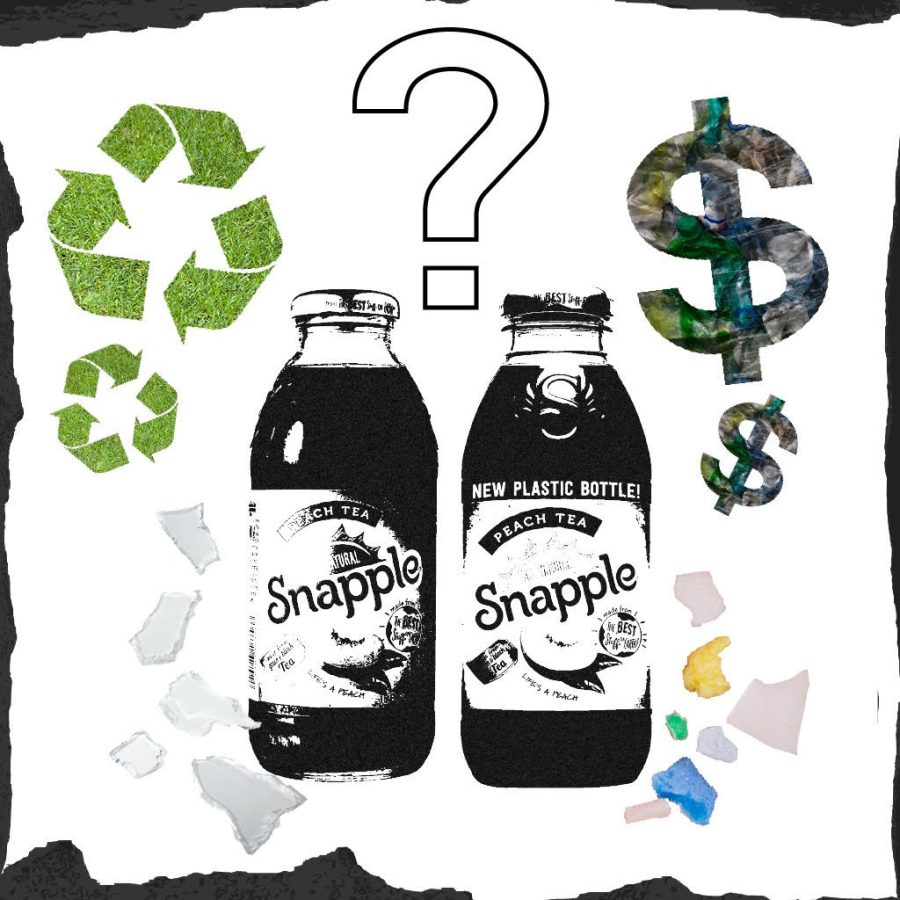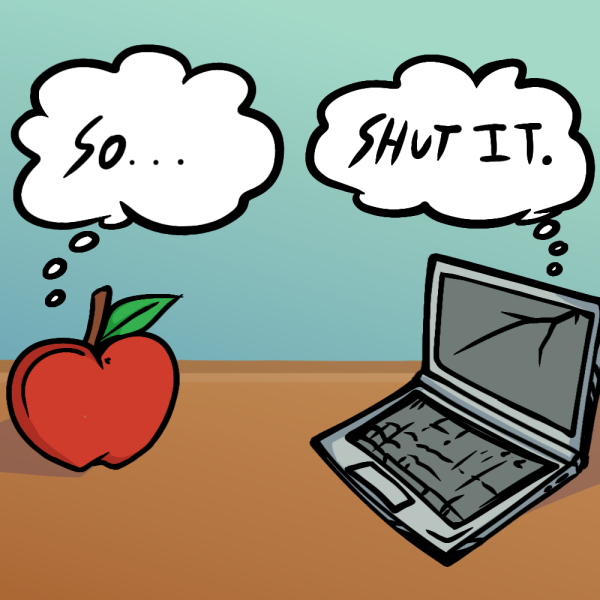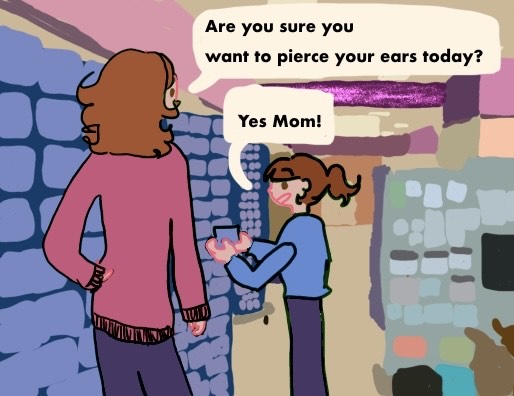Recycling the Blame
Raising awareness about the plastic waste issue.
Dear Snapple: we want our glass bottles back.
About five years ago, you got rid of the glass bottles that were a staple of your company and started producing plastic bottles instead. The reason for doing so was because it was meant to be better for the environment as producing plastic requires less energy than glass. However, would it not have been more environmentally friendly had you continued to produce glass bottles and simply switched to using clean energy?
But corporations have been doing this for ages. They produce plastic bottles (because it’s cheaper) and claim that it isn’t terrible for the environment because consumers can simply recycle them. But the truth is that most plastic cannot be ethically or properly recycled.
According to a May 2022 article from The Atlantic, the highest rate of plastic recycling was at a lousy 9.4% in 2014 and has only declined since then with only 5% of plastic waste being recycled in 2021. And even when plastic recycling in the U.S. was at its highest, it was because millions of tons of plastic waste was exported to China and counted as recycled even though not all of it was.
These low percentages for recycled plastic are not necessarily because people were choosing not to recycle their plastic, but rather that the contents of most people’s recycling bins were ending up in the same landfills that their trash was going to due to the truth regarding plastic recycling- which is that it is a dead end.
A Greenpeace article states that attempts at recycling plastic fail because it is “extremely difficult to collect, virtually impossible to sort for recycling, [and] environmentally harmful to reprocess.”
So, if this all is true and most plastic cannot properly be recycled, why do most people think that it can be? According to that same Greenpeace article, big corporations that profit off the production of plastic have been marketing recycling as the solution to the plastic waste problem for decades. Doing so shifts the blame from the companies producing the toxic materials to the consumers who purchase it. So not only do big companies get to save money, but they also are not held accountable for the detrimental effects their products have on the environment.
To be quite frank with you, Snapple, I find it very hard to believe that none of the people who were ultimately responsible for making this decision (switching from glass to plastic) didn’t know about this. And I especially find it hard to believe that you genuinely thought that changing your glass bottles (which were 100% recyclable) to plastic was at all better for the environment. Truly, the only positive thing that came out of this decision was that it put more money in your pockets, isn’t that right, Snapple?
For far too long, we as a society have been framing the plastic waste issue, and pollution problems in general, as everyone’s problem and as a collective effort. While that isn’t necessarily untrue, it disproportionately places blame on consumers for the products they use rather than blaming companies for producing them.
In order for the world to move towards more sustainable tendencies, companies as well as the consumers of their products have to be willing to spend more money. However, the cost of not doing so is far greater, and far more permanent. Exploring more sustainable materials and ways of producing such materials now may be expensive but would eventually become the norm and the positive outcome would be worth it.
One thing that we can and must do is hold these companies accountable. Obviously, a huge part of that is boycotting their products, but more importantly, we need to collectively bring awareness to this issue. Not enough people know about the truth regarding plastic recycling and if people don’t know about it, the plastic waste issue will worsen and the plastic industry will continue to profit off the inevitable demise of everyone, and everything else.
Companies that benefit from the production of plastic are ultimately to blame for the plastic waste and pollution issue so we need to collectively switch our attention back to them rather than urging people to recycle a product that can’t be recycled.






